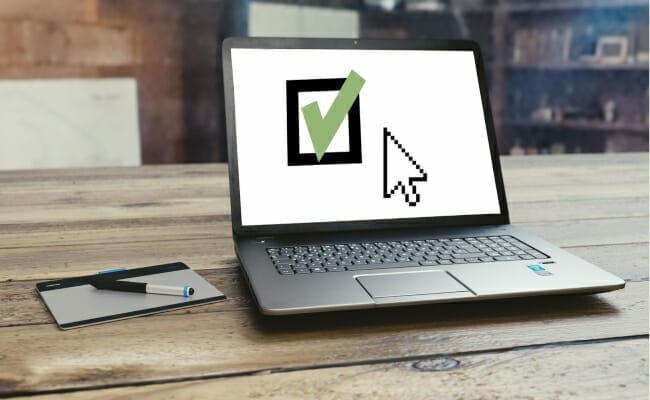Homeownership comes with great advantages, but it’s important to have a firm grasp on what the process entails at the beginning of your search.

No or Low Debt
The first and largest consideration before buying a home is to examine how much debt you’re currently carrying already. Mortgage lenders will want to see how much of your monthly expenses are already going to payments on school loans, car loans and other expenses. Of course, the less debt you carry, the more likely you are to get a great loan on a home. Still, if you have debt, especially low debt, you can still get a good loan to own your own home.
You must first look at your debt-to-income (DTI) ratio. This simply allows lenders to see how much of your monthly income is used to pay off debt. If you earn $3,000 a month of gross income, but $1,500 of it goes to debt payments, your debt-to-income ratio is 50%. Many mortgage lenders look for a DTI ratio of less than 43%. If your DTI is higher than this, a good option to bring that percentage down is to consolidate your debts into one debt payment instead of several. This option allows you to pay less each month and often with a lower interest rate. You can consolidate credit card debt and student debt. Check First Security Bank’s debt consolidation calculator to estimate your monthly savings and find the best option to lower your DTI ratio.

Down Payment Saved
It’s true that to buy a home, you’ll need to first have saved a down payment to put towards your home purchase. Many people still consider that payment to be in the range of 10% to 20% of the total cost of the home. If you’re purchasing a $250,000 home, reaching that $25,000 down payment mark can feel impossible.
However, the nature of down payments has changed. If you’re able to offer 10% to 20% of the purchase price, you’ll be able to take advantage of the best mortgage rates, but such a high payment isn’t expected anymore. Many home buyers offer between 5% to 7% of the purchase price. If you’re applying for a Federal Housing Administration (FHA) loan, you’ll only need 3.5% as a down payment. While you will want to have some money saved to put down on your purchase price, don’t let this idea scare you away from homeownership. Talk to a mortgage lender who can help you consider every type of loan you’re eligible for.

Credit Score
Potential homebuyers are often anxious about their credit score. Credit scores are numbers ranging from 300 to 850 that judge how likely you are to repay your loan. The higher your score, the more likely a lender will feel confident about giving you a mortgage loan. Credit scores are obtained by looking at your past credit history. This includes all credit, like car or student loans, existing mortgages and credit card history.
The most important factor here is whether you have made your credit payments on time. Missed payments will lower your score. Closing out credit cards can also lower them. Sometimes people have no credit scores if they choose to not use credit cards and have no outstanding loans. Credit scores above 700 are considered favorable for loans and will help you save money. However, a score under that doesn’t rule out a loan. It just means your loan conditions won’t be as favorable. Some lenders will consider loans with a credit score of 620. An FHA loan requires a score of 500.
You can improve your credit score in several ways. First, pay your bills on time each month. Late payments will hurt your score. Next, try to keep your credit card balances low. Low balances are easier to pay off and show you’re not in danger of overextending yourself financially. Opening a new credit card to increase your credit score may not be the best solution. Instead, several companies offer credit builder loans. A lender will loan you a small amount of money, which is placed in a separate account. The money is not available to you until you have repaid the loan. Once the loan is repaid, you will have raised your score.
Credit score is an important indicator of whether you’re ready to buy your home now, or wait while you try to raise it to achieve a more favorable mortgage loan in the future.

Long-Term Stability
Buying a home is a long-term investment. Most homeowners will need to own their home at least five years to gain back the initial cost of purchasing the home. It’s important to consider what your future stability looks like when deciding if you’re ready to buy a house. First, are you in a job that will provide you with enough monthly income to manage your mortgage payments as well as other expenses? Is it a job you want to stay in for at least the first few years of homeownership? If you’re planning on changing jobs soon, it might be wise to wait on purchasing that home.
You’ll also need to consider the area where you’re buying your home. Do you see yourself living here for at least five years or is there a move in your near future? Of course, these questions can be difficult to answer, but they’re worth considering before jumping into homeownership.

Savings
Finally, don’t forget the importance of savings when making the decision to buy a house. This doesn’t include the savings you’ll use to make your down payment. Homeownership comes with responsibilities for every aspect of your home: plumbing, utilities, insurance, home modifications and unexpected expenses, like replacing a water heater within a few months of purchase, or a dishwasher that won’t seal. You don’t want these surprise expenses to make it difficult to pay your mortgage and other bills. Having savings dedicated to these types of expenses will allow you more peace of mind when you’re considering buying a house.
If you find you can check these boxes, you’re ready to find a great home this year. If you’re still working towards savings for a down payment or raising your credit score, it’s still a great time to consider how soon you’ll reach your goals. You can also reach out to a professional at First Security Mortgage to get the best advice as you move forward toward purchasing your home.

